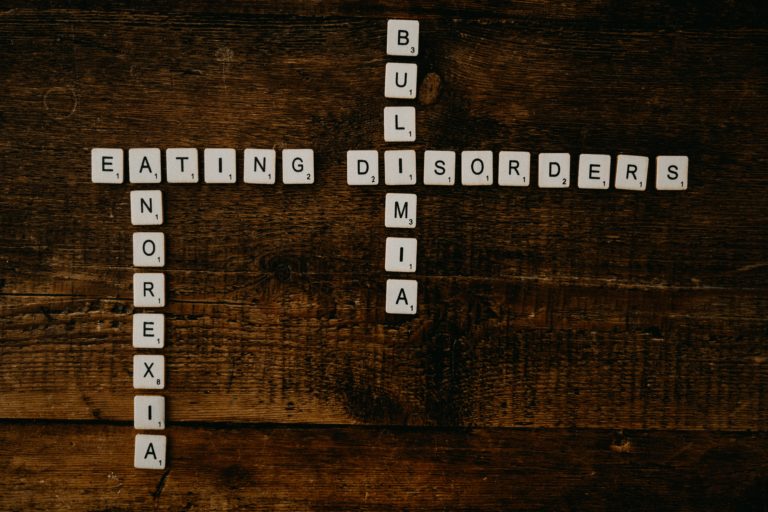In today’s fast-paced and technology-driven world, it is easy to become immersed in our own little bubbles and overlook the importance of social connections. Human beings are inherently social creatures, and nurturing meaningful relationships is essential for our overall well-being. In this article, we will delve into the significance of staying socially connected and explore the signs that may indicate a need for more social interaction in our lives.
The Power of Social Connections

1. Emotional Support
Social interactions are the cornerstone of emotional support. They provide us with the essential human connection that nurtures empathy, understanding, and a profound sense of belonging. When we engage with friends, family, and acquaintances, we create an environment where we can openly share our joys, triumphs, and challenges. This sharing forms the bedrock of emotional support, allowing us to lean on one another during both the good times and the bad.
Empathy: Social interactions enable the exchange of empathy, which is the ability to understand and share the feelings of others. When we talk to someone who listens and empathizes, it can feel like a weight lifted from our shoulders. Knowing that someone genuinely cares and comprehends our emotions creates a sense of validation and reassurance.
Sense of Belonging: Meaningful social connections foster a deep sense of belonging. We are wired to seek out communities and groups where we fit in and are accepted. These connections offer a place where we can be ourselves without judgment or pretense. The sense of belonging that emerges from such relationships contributes significantly to our emotional well-being.
2. Mental Health
Maintaining a robust social network has profound implications for our mental health. Regular social interaction serves as a potent antidote to the stressors of life and can significantly impact various aspects of our psychological well-being.
Stress Reduction: Engaging in social activities can help alleviate stress. When we share our concerns with friends or family, we often feel a sense of relief. Talking through our problems and receiving support can provide emotional catharsis, reducing the tension that builds up from life’s challenges.
Depression and Anxiety: Social isolation is closely linked to depression and anxiety. A lack of social interaction can exacerbate feelings of loneliness and hopelessness. In contrast, meaningful relationships offer a buffer against these mental health issues. They provide a sense of purpose and a reason to look forward to each day.
Self-Esteem and Personal Growth: Meaningful relationships often serve as mirrors, reflecting back our strengths, talents, and qualities. They can boost self-esteem by validating our worth and contributions. Additionally, the challenges and shared experiences within these relationships create opportunities for personal growth and self-discovery. Through interactions with others, we learn more about ourselves and our capabilities.
3. Cognitive Stimulation
Engaging in social activities is a cognitive workout for our brains. These interactions keep our minds active and sharp, offering numerous cognitive benefits that contribute to lifelong learning and mental agility.
Stimulated Thinking: Discussions, debates, and the exchange of ideas that occur during social interactions stimulate our cognitive processes. When we engage with others in intellectual conversations, our minds are challenged and encouraged to think critically and creatively.
Expanded Knowledge: Interacting with people from diverse backgrounds exposes us to new perspectives, information, and ideas. This exposure expands our knowledge base and encourages us to question our preconceptions, fostering intellectual growth.
Creative Thinking: Social interactions can inspire creative thinking. When we engage in brainstorming sessions, collaborate on projects, or simply bounce ideas off one another, we tap into our collective creativity. These interactions can lead to innovative solutions and novel insights.
4. Physical Well-being
Social interactions aren’t just beneficial for our minds; they also play a significant role in maintaining our physical health. Engaging in social activities is linked to improved physical well-being and overall longevity.
Lowered Blood Pressure: Research has shown that social interactions can lead to lower blood pressure. Conversations and laughter with friends, for example, have been found to have a positive impact on cardiovascular health, reducing the risk of hypertension.
Enhanced Immune System: Strong social connections can enhance the immune system. Feeling socially connected and supported can lead to increased production of immune-boosting substances in the body, which helps us better fight off infections and illnesses.
Longevity: Studies have consistently shown that individuals with active social lives tend to live longer. Engaging in social activities can have a protective effect on health, contributing to a longer and more fulfilling life.
Physical Activity: Sharing physical activities with others, such as exercising or participating in sports, can lead to a healthier lifestyle. Social engagements provide motivation and companionship, making it easier to maintain physical fitness routines.
In conclusion, the power of social connections is immense and multifaceted. From providing emotional support and boosting mental health to stimulating cognitive processes and enhancing physical well-being, social interactions are a fundamental aspect of our lives. Recognizing their importance and actively nurturing our social networks can lead to a happier, healthier, and more fulfilling life. So, let’s cherish and prioritize our relationships, for they are a vital component of our overall well-being in an increasingly interconnected world.
Signs You Need More Social Interaction

1. Feelings of Loneliness
Loneliness is a complex emotion that can manifest as a deep sense of emptiness and longing for social connection. It goes beyond mere physical isolation; it’s a profound emotional state where one may feel disconnected from others, even when surrounded by people. Persistent loneliness can have far-reaching consequences on both mental and physical health.
Effects of Loneliness:
- Mental Health Impact: Prolonged loneliness can lead to increased stress, anxiety, and depression. It can also affect sleep patterns, leading to insomnia and other sleep-related disorders.
- Physical Health: Loneliness has been associated with various physical health issues, including increased inflammation, a weakened immune system, and higher blood pressure. Over time, these effects can contribute to the development of chronic illnesses.
- Cognitive Decline: Research suggests that loneliness may be linked to cognitive decline and an increased risk of conditions like Alzheimer’s disease.
- Emotional Distress: Loneliness often brings emotional distress, which can manifest as feelings of sadness, emptiness, and a lack of purpose.
Recognizing and addressing loneliness is essential for overall well-being. Seeking out social interactions, even small ones, can help alleviate these feelings and provide emotional support.
2. Isolation and Withdrawal
Isolation and withdrawal from social situations are clear signs that one may need more social interaction. When you consistently avoid gatherings, events, or activities you once enjoyed, it can indicate a growing disconnect from the world around you. Isolation, if left unchecked, can lead to a decline in mental health.
Effects of Isolation and Withdrawal:
- Increased Anxiety: Avoiding social situations can lead to heightened anxiety, particularly when faced with social interactions. Social anxiety may develop, making it increasingly challenging to engage with others.
- Loneliness: Isolation often leads to loneliness, compounding feelings of emptiness and longing for connection.
- Lack of Fulfillment: Over time, withdrawal from social activities can result in a sense of unfulfillment and a missed opportunity for personal growth and enjoyment.
- Stagnation: Isolation can lead to a stagnant routine, where every day feels the same, contributing to a lack of vitality and enthusiasm for life.
Breaking the cycle of isolation requires effort, but it can be immensely rewarding. Gradually reintroducing social activities and reconnecting with friends and loved ones can help counteract the effects of withdrawal.
3. Decreased Self-Esteem
A decline in self-esteem and self-worth may indicate a need for more social interaction. Positive social interactions provide opportunities for validation, recognition, and reinforcement of one’s self-worth. In contrast, a lack of social engagement can lead to feelings of being unappreciated or overlooked.
Effects of Decreased Self-Esteem:
- Negative Self-Image: Low self-esteem often results in a negative self-image, where individuals doubt their abilities and worth.
- Self-Criticism: Those with diminished self-esteem may engage in harsh self-criticism, which can be detrimental to mental health.
- Social Isolation: Paradoxically, low self-esteem can lead to social isolation as individuals may avoid social situations out of fear of judgment or rejection.
- Limiting Potential: When self-esteem is low, individuals may not pursue opportunities for personal or professional growth, as they doubt their abilities.
Addressing decreased self-esteem often involves gradually reintroducing oneself to social situations, engaging in activities that boost self-confidence, and seeking support from friends, family, or a therapist.
4. Lack of Emotional Support
A lack of emotional support is a clear indication that one’s social connections may need strengthening. Emotional support is vital for processing thoughts, concerns, and experiences. Sharing these with others helps alleviate emotional burdens and enhances overall well-being.
Effects of a Lack of Emotional Support:
- Emotional Burden: Without emotional support, individuals may carry emotional burdens in isolation, leading to heightened stress and anxiety.
- Negative Coping Mechanisms: In the absence of emotional support, some individuals may turn to negative coping mechanisms such as substance abuse or excessive use of technology.
- Impact on Mental Health: A lack of emotional support can contribute to feelings of depression, anxiety, and emotional distress.
Recognizing the need for emotional support and seeking it from trusted friends, family, or a therapist can significantly improve mental and emotional well-being.
5. Monotonous Routine
Falling into a monotonous routine devoid of social activities may indicate a need for change. When your days consist primarily of work and solitary activities, it can lead to a sense of imbalance and a lack of vitality in life.
Effects of a Monotonous Routine:
- Decreased Motivation: A lack of variety and social engagement can lead to decreased motivation and enthusiasm for daily activities.
- Stagnation: Routine can be comforting, but it can also lead to stagnation if it lacks social engagement and variety. Life may start to feel repetitive and unfulfilling.
- Impact on Mental Health: A monotonous routine can contribute to feelings of emptiness and longing for something more, affecting mental health.

In an era of increasing digital connectivity, it is vital to remember the significance of genuine social interaction. Building and maintaining relationships can bring immense joy, emotional support, and cognitive stimulation. By recognizing the signs of insufficient social interaction, such as loneliness, isolation, decreased self-esteem, and lack of emotional support, we can take steps to prioritize and foster meaningful connections. So, let’s make a conscious effort to invest time and energy into cultivating our social networks, as they are an invaluable aspect of our overall well-being.




